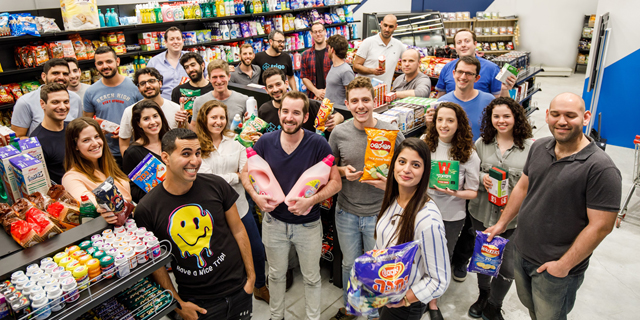
Trigo to launch contactless grocery stores in Europe and Israel
“The health crisis has created intense pressure to implement technologies that will do away with lines and crowding,” said CEO
Nurit Kadosh | 09:33, 30.07.20
Israeli retail startup Trigo Vision Ltd. is set to open its first automated, contactless food store. A source with knowledge of the move told Calcalist on condition of anonymity that the store will launch in a yet to be named western European country in the fourth quarter of 2020 and will be followed by the opening of a second store in Israel, under the Shufersal retail chain brand.
Trigo was founded in 2017 and has raised $34 million to date from venture capital firms such as Vertex Ventures, Hetz Ventures and Red Dot Capital, as well as from British supermarket giant Tesco. Its platform combines computer vision with a network of cameras that is able to track customers’ movements and the products they gather in real time, with the payment completed via an app on shoppers’ phones, eliminating the need to pay at the cash register before exiting the store. Trigo’s system also aids in automated inventory management.
In Israel, the company is conducting tests in a Shufersal store in Tel Aviv and it is expected to launch its activity in a different store that belongs to the chain. The system works similarly to that of Amazon Go, which is launching a chain of physical stores that enable friction-less purchases, however, Trigo’s solution can be implemented in existing stores and doesn’t require special ones to be built.
“Covid-19 impacted us very positively,” said Michael Gabay, the company’s co-founder and CEO. “The supermarket chains were not negatively impacted by the outbreak and have time and money to spend. Additionally, the health crisis has created intense pressure to implement technologies that will do away with lines and crowding. Investors too have realized that food retail is an industry that benefited from the circumstances and have continued to show interest in the company.”
